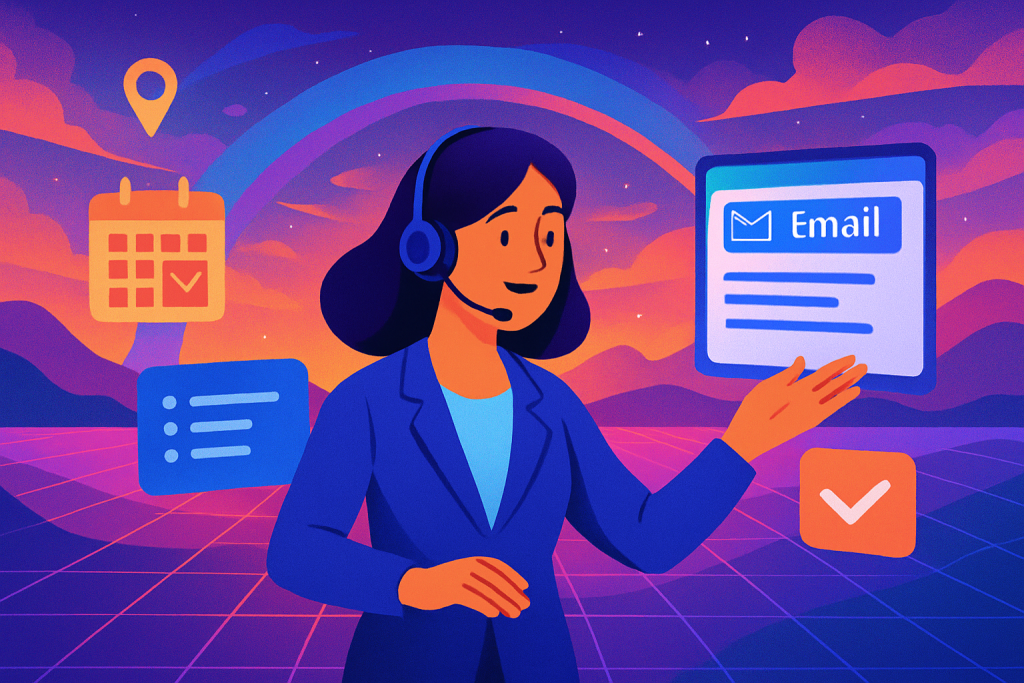Remember HAL 9000? The chillingly calm, yet ruthlessly efficient AI from 2001: A Space Odyssey? Well, fast forward a few decades, and while we’re (hopefully) not facing homicidal spacecraft AIs, the dream of truly autonomous agents is becoming a reality. OpenAI just dropped a bombshell, unveiling a significantly upgraded ChatGPT with the ability to handle complex, multi-step tasks all on its own. Forget simple chit-chat; this is ChatGPT getting serious, ready to tackle your to-do list like a digital ninja.
Think of it as ChatGPT graduating from remedial chatbot school to become a full-fledged digital assistant, capable of not just understanding your requests, but also figuring out how to actually get them done. We’re talking about automating tasks that previously required a human in the loop, clicking, scrolling, and generally wrestling with the digital world. The implications are huge, and the future of work just got a whole lot more… interesting.
But how did we get here? This wasn’t an overnight sensation. The evolution of ChatGPT has been a carefully orchestrated dance, a gradual refinement from a simple language model to a versatile tool integrated into countless applications. Remember the initial hype? The novelty of having a chatbot that could write passable poetry or explain quantum physics (sort of)? That was just the beginning. OpenAI has been quietly laying the groundwork for this moment, strategically adding features like the “operator” for website interaction and “deep research” for complex information gathering. This new AI agent is the culmination of that effort, a Frankensteinian creation of their best parts, brought to life with a spark of autonomy.
So, what exactly can this new ChatGPT agent do? Imagine asking it to “plan a surprise birthday party for my spouse, including finding a venue, sending invitations, and ordering a cake.” Previously, you’d need to break that down into a series of individual commands, guiding ChatGPT every step of the way. Now? The agent can take the reins, autonomously searching for venues based on your criteria, crafting personalized invitations, comparing cake options from local bakeries, and even coordinating delivery. It’s like having a hyper-efficient personal assistant who never sleeps and doesn’t ask for a raise (yet).
The technical wizardry behind this is fascinating. The agent operates within a virtual computer environment, equipped with tools that can interact with the web and integrate with popular applications like Gmail and GitHub. This means it can access information, send emails, manage code repositories, and generally navigate the digital landscape with surprising agility. It’s not just regurgitating information; it’s actively using it to achieve your goals. The implications for productivity are staggering.
Of course, access to this kind of power doesn’t come cheap. Starting July 17, only subscribers to ChatGPT’s Pro, Plus, and Team tiers can unlock these agentic capabilities. This tiered approach is a classic OpenAI move, prioritizing paying customers and likely gathering valuable data on how users are leveraging the new features. It’s a smart strategy, but it also raises questions about accessibility and the potential for an AI divide, where the benefits of advanced AI are concentrated in the hands of those who can afford them.
And who are the big players watching this development with bated breath? Pretty much every major tech company, from Microsoft to Salesforce to Oracle. They’ve all been investing heavily in agent-based technologies, recognizing the potential to revolutionize workflows and boost operational efficiency. OpenAI’s move is a direct challenge to their dominance, a declaration that they’re not content with just building chatbots; they’re building the future of AI-powered automation. The race is on, and the stakes are incredibly high.
But let’s not get carried away with visions of a utopian future where robots do all our work. There are serious ethical considerations to address. What happens when these AI agents make mistakes? Who is responsible when an autonomous system sends the wrong email, orders the wrong product, or makes a critical error in a financial transaction? And what about job displacement? As AI becomes increasingly capable of handling complex tasks, what happens to the humans who used to perform those tasks?
These are not hypothetical questions; they’re real concerns that need to be addressed proactively. We need to have a serious conversation about the societal impact of AI, about the need for regulation, and about the importance of ensuring that these powerful technologies are used responsibly and ethically. We don’t want to end up in a situation where AI exacerbates existing inequalities or creates new forms of exploitation. Think Westworld, but with less robot rebellion and more subtle forms of societal disruption.
Financially, the implications are also significant. The rise of AI agents could lead to increased productivity, higher profits, and new business models. But it could also lead to market consolidation, as companies with access to advanced AI gain a competitive advantage over those who don’t. We could see a winner-take-all scenario, where a few dominant players control the AI landscape, wielding immense power and influence. The potential for disruption is enormous, and investors are scrambling to figure out who the winners and losers will be.
Ultimately, OpenAI’s unveiling of this ChatGPT agent is more than just a product launch; it’s a watershed moment in the evolution of AI. It’s a glimpse into a future where AI is not just a tool, but a partner, capable of working alongside us to solve complex problems and achieve ambitious goals. It’s a future that is both exciting and daunting, a future that demands our attention, our critical thinking, and our collective responsibility. So buckle up, folks. The AI revolution is here, and it’s only just getting started.
Discover more from Just Buzz
Subscribe to get the latest posts sent to your email.


